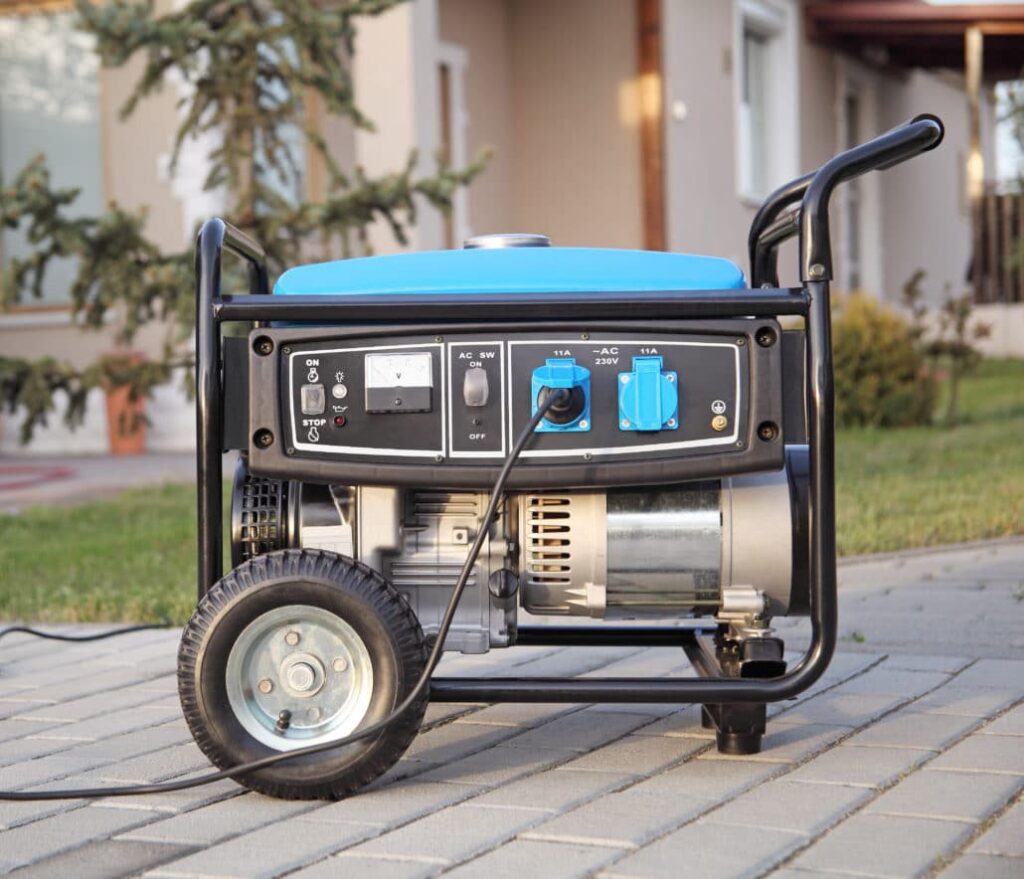Ah, hurricane season in Florida. That time of year when we all take stock of our emergency kits, stock up on bottled water and non-perishables, and pray that we don’t end up without power for days on end. If you’re anything like me, you’ve been burned by a few storms in the past and you’re determined not to let it happen again.
That’s why today we’re going to talk about one of the most important parts of your hurricane preparedness plan: your portable generator. Specifically, we’re going to dive into the differences between inverter and conventional generators, and dual-fuel and gas-only options, so you can be sure you’re getting the best possible option for your needs.
Best Portable Generator: Conventional vs Inverter
First, let’s talk about the difference between inverter and conventional generators. The main difference comes down to how they produce electricity.
Conventional Generators
Conventional generators have been a reliable and common source of electricity for many years. These machines, also known as standard generators, operate by using an engine to power a motor which is then connected to an alternator to produce electric energy.

While newer and more advanced power generation methods have been developed, conventional generators remain a popular choice due to their proven track record and relative affordability.
From powering homes during a blackout to being used on construction sites, conventional generators play an important role in meeting our energy needs. It’s fascinating to think that something as simple as a motor and alternator can produce the electricity that powers our daily lives.
Inverter Generators
Inverter generators are a fascinating piece of technology that offer state-of-the-art electricity generation. With the ability to draw power from a DC source like solar panels or car battery and convert it into AC power using electronic circuits, these generators offer a reliable source of energy for all your needs. DC and AC, the two types of electrical currents, are very different from each other. DC current only flows in one direction, while AC current changes direction periodically. With inverter generators, you’re getting the best of both worlds and can enjoy the convenience and efficiency of modern electricity generation.

Think of an inverter generator as a giant rechargeable battery. You plug it in, charge it up, and then you can plug other things into it until the battery is drained.
Comparing Conventional and Inverter Generators
By combining noise, fuel efficiency and power output, we’ve considered the fact that each of these aspects can significantly affect one another.
Conventional generators offer more powerful wattage capability than inverter types – going up to 10,000 watts! You’ll be able to power more things for longer which makes these conventional portable gas-powered generators ideal for post-hurricane power outage survival.
And with bigger tanks for gasoline, diesel or propane means fewer trips to refill; keeping you powered for longer periods at a time.
Inverter generators are a great choice for those who need power but don’t require high-output wattage. They produce energy more efficiently than conventional models, using less fuel – so the tank can be much smaller!
With inverter generator output ranging from 1200 to 4000 watts, these devices provide an impressive range of versatility.
Cost Comparison
Conventional generators offer a good economic option for those who require large amounts of power. On the other hand, inverter generator technology provides better value thanks to its innovative engineering and quieter operation as well as more cost-effective performance.
For the purposes of hurricane preparedness, most people will do just fine with a conventional gas-powered portable generator.
Dual-Fuel vs Gas-Only Generators
Next, let’s talk about dual-fuel vs gas-only generators.
Dual-fuel generators, as you might guess, can run on either propane or gasoline.
This can be a big advantage during a hurricane, when gas stations might be closed or out of fuel. Propane is also typically cheaper and easier to store for extended periods of time than gasoline.
Gas-only generators, on the other hand, tend to be more powerful and have longer run times than dual-fuel options. They’re also usually less expensive, so it’s a good choice if you don’t anticipate needing propane as a backup fuel source.
Best Portable Generator Suggested Features
So, what should you look for when choosing a portable generator? Here are some key features to consider:
- Power output: Your generator should have enough power to keep your fridge running, as well as any medical equipment or other essential devices you rely on.
- Runtime: Look for a generator that can run for at least 8-10 hours on a full tank of gas or propane.
- Noise level: Generators can be loud, so look for options with noise-dampening features or low decibel ratings.
- Weight: If you plan on moving your generator around a lot, an inverter is better for that, but the conventional generator should have wheels.
- Fuel efficiency: A more fuel-efficient generator will save you money in the long run.
- Safety features: Look for generators with features like automatic shut-off in case of low oil, low fuel, or overheating.
When it comes to preparing for hurricane season, a portable generator can be a lifesaver. By choosing the right type of generator and considering features like power output, runtime, noise level, weight, fuel efficiency, and safety features, you’ll be in good shape to ride out any storm.
Just remember, even the best generator won’t do you any good if you don’t take care of it properly and follow all recommended safety protocols.








